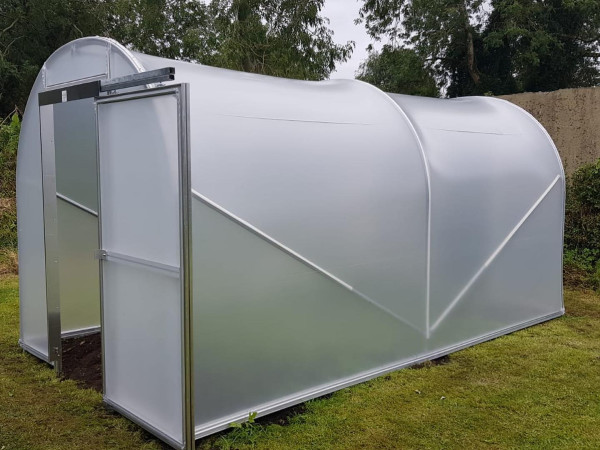
With the country’s temperate climate and the increasing demand for fresh, organic food, there’s never been a better time to start a vegetable garden, whether you have a sprawling plot or a small backyard. Growing your own veg can save you money, reduce your carbon footprint, and give you a sense of accomplishment when you harvest your home-grown produce. This beginner's guide will help you get started, no matter your experience level.
Gardening offers numerous benefits, from saving money on groceries to reducing stress and promoting physical activity. Growing your own veg is also a great way to ensure that you and your family are eating healthy, pesticide-free produce. Plus, nothing beats the taste of fresh, homegrown carrots or tomatoes!
Ireland’s mild, oceanic climate allows for a long growing season, but it’s essential to plan your garden around the weather. Most vegetable gardens in Ireland begin in early spring (March to April), but some crops can be planted as early as February in sheltered areas or with the help of a Polytunnel. The autumn months (September to October) are also ideal for planting winter-hardy crops like kale, garlic, and broad beans.
For beginners, it’s important to start with easy-to-grow vegetables that thrive in Ireland’s climate. Here are a few beginner-friendly options:
To begin, you need to decide whether you’ll be growing directly in the ground, in raised beds, or in containers. Raised beds are particularly popular in Ireland, as they help improve drainage—essential in areas that get a lot of rain. You can easily set up a raised bed using our Raised Planters, which are available in different sizes for all types of gardens. Containers are perfect for small spaces or urban gardening and work well with vegetables like tomatoes, lettuce, or herbs.
Before planting, ensure the soil is healthy by adding compost or well-rotted manure. This will improve the soil structure, providing the nutrients needed for your plants to thrive. Consider using a Compost Bin to recycle kitchen scraps and garden waste, enriching your soil naturally.
Many vegetables, such as carrots, lettuce, and peas, are best grown from seeds directly sown in the garden. However, some plants like tomatoes and peppers benefit from being started indoors first. This can be done in February or March using a Propagator to provide the warm, controlled environment seeds need to germinate.
Once the seeds have sprouted, and the weather has warmed up, you can transplant the seedlings into your garden. Be sure to "harden off" your plants by gradually exposing them to outdoor conditions for a few hours each day over a week.
Ireland’s weather can be unpredictable, so it’s important to protect your plants from the elements. This is where our Polytunnels come in handy. A Garden Pride Polytunnel, for example, can extend your growing season, protect against frost, and provide a controlled environment for your crops. Polytunnels also shield plants from heavy rains and strong winds, common challenges in Irish gardening.
You may also need to safeguard your plants from pests like slugs, which are notorious in Ireland for eating tender young plants. Raised beds, mulch, and organic slug pellets can help reduce the damage caused by these garden pests.
Irish summers can be relatively wet, so you might not need to water as frequently as you would in other countries. However, during dry spells, it’s essential to water your plants deeply, especially vegetables like tomatoes, cucumbers, and peppers, which require consistent moisture. You can save time and effort with Self-Watering Planters, perfect for keeping your plants hydrated even when you're busy.
Feeding your plants with organic fertiliser or compost is essential for strong growth. Some plants like beans and peas naturally enrich the soil with nitrogen, reducing the need for extra fertilisers.
The joy of gardening comes when it’s time to harvest your crops. Many vegetables can be harvested over an extended period, especially if you’ve planted in succession. Carrots, potatoes, and onions can be harvested in late summer or early autumn, while lettuce and peas can be picked as soon as they’re mature.
Harvesting is not only satisfying but can also reduce food waste. By growing what you need and picking it fresh from the garden, you’ll avoid the excessive packaging and carbon footprint associated with store-bought vegetables.
To make your gardening experience easier and more enjoyable, be sure to have the right tools. Ensure you’re well-equipped for every task.
Whether you’re a seasoned gardener or just starting out, we have everything you need to grow your own veg. Explore our range of Raised Planters, Polytunnels, and Self-Watering Planters to kickstart your vegetable gardening journey.